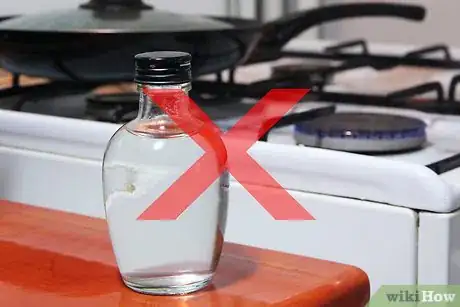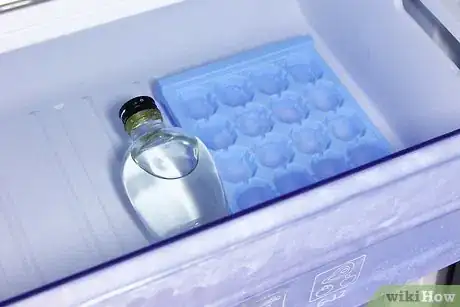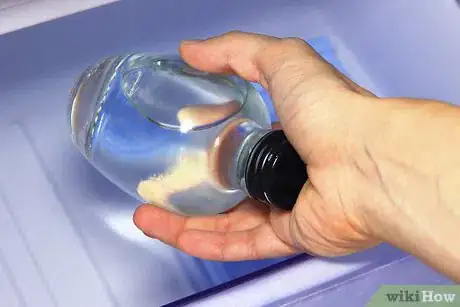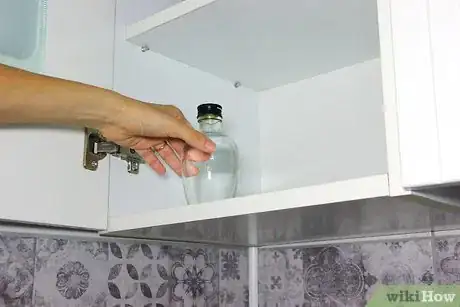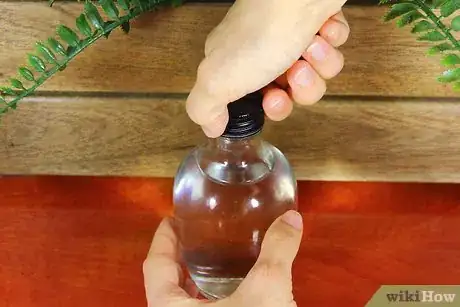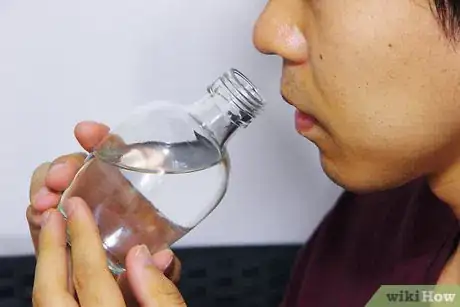X
This article was co-authored by Tom Blake. Tom Blake manages the bartending blog, craftybartending.com. He has been a bartender since 2012 and has written a book named The Bartender's Field Manual.
There are 8 references cited in this article, which can be found at the bottom of the page.
This article has been viewed 18,940 times.
Gin, like other distilled spirits, is easy to keep on hand, as it has a long shelf life. You can keep it at room temperature, though slightly cooler is a bit better. You can even keep it in the freezer if you prefer. To ensure quality, make sure to store it away from sunlight with a tight lid.
Steps
Part 1
Part 1 of 2:
Finding the Right Temperature
-
1Keep gin between 55 and 60 °F (13 and 16 °C). This range is ideal for maintaining the quality of your gin. However, if you don't have a special area that would hit this temperature (such as a basement), room temperature is also fine.[1]
- Higher temperatures can cause oxidation, meaning the taste might change, though the gin will still be safe to drink.
-
2Store your gin away from heat sources. Because heat can speed up oxidation, you don't want to store your gin anywhere it can get hot, even intermittently. For instance, avoid keeping it in a cabinet above the stove, where it could get too hot.[2]
- Also avoid keeping it on top of the refrigerator, which can warm up, too.
Advertisement -
3Store gin in the freezer if you prefer to keep it cold. Gin doesn't freeze, so if you prefer to have a chilled drink at a moment's notice, the freezer is a good option. It won't affect the quality to store it this way.[3]
-
4Stick your gin in the freezer for an hour before using to chill it. If you want to make a chilled drink with gin but don't want to store it there permanently, placing it in the freezer for about an hour is a great way to do that. You get a cool drink without watering it down with ice.[4]
Advertisement
Part 2
Part 2 of 2:
Keeping Your Gin Tasty
-
1Tuck your gin away from the sunlight. Sunlight can also speed up oxidation, changing the flavor of your liquor. Stick it some place where the UV rays won't hit it for optimum flavor.[5]
- A cabinet is ideal for storing gin, as no light will hit it.
- Even if it does oxidize, it's still safe to drink. Oxidization will cause gin to lose some of its citrus notes. It may also gain a bit of a moth ball taste.[6]
-
2Keep the bottle upright. If you're storing wine, you should keep it on its side. However, when it comes to liquors like gin, store them with the bottle facing up, particularly if it has a cork.[7]
- The cork can partially dissolve into the gin, altering the flavor.
-
3Close the lid tightly. A loose lid can lead to quicker evaporation of your liquor. Plus, leaving it loose can let in more air, affecting the flavor. Make sure the lid is on tightly before you leave it to sit for any length of time.[8]
-
4Finish the gin off more quickly as you get to the end of the bottle. The less there is in the bottle, the more likely it is to oxidize. That means you'll get unappetizing flavors. Once you reach the last 1/3 of the bottle, try not to leave it too long.[9]
-
5Check for an off odor or color. While gin will remain safe to drink, the quality can go down if it's not stored properly. Typically, you may notice it smells funny or the color isn't as clear as it should be.[10]
- It's most likely still safe to drink, as long as it hasn't been contaminated with anything.
Advertisement
References
- ↑ https://www.liquor.com/articles/the-proper-way-to-store-your-liquor/#gs.E_i=k10
- ↑ https://stilltasty.com/Fooditems/index/17260
- ↑ https://www.liquor.com/articles/the-proper-way-to-store-your-liquor/#gs.E_i=k10
- ↑ https://www.tastingtable.com/drinks/national/how-to-store-alcohol
- ↑ https://stilltasty.com/Fooditems/index/17260
- ↑ http://www.alcademics.com/2015/09/science-on-how-spirits-change-or-age-in-the-bottle-rather-than-the-barrel.html
- ↑ https://www.liquor.com/articles/the-proper-way-to-store-your-liquor/#gs.E_i=k10
- ↑ https://stilltasty.com/Fooditems/index/17260
- ↑ https://www.liquor.com/articles/the-proper-way-to-store-your-liquor/#gs.E_i=k10
About This Article
Advertisement

